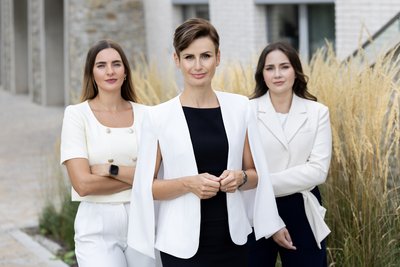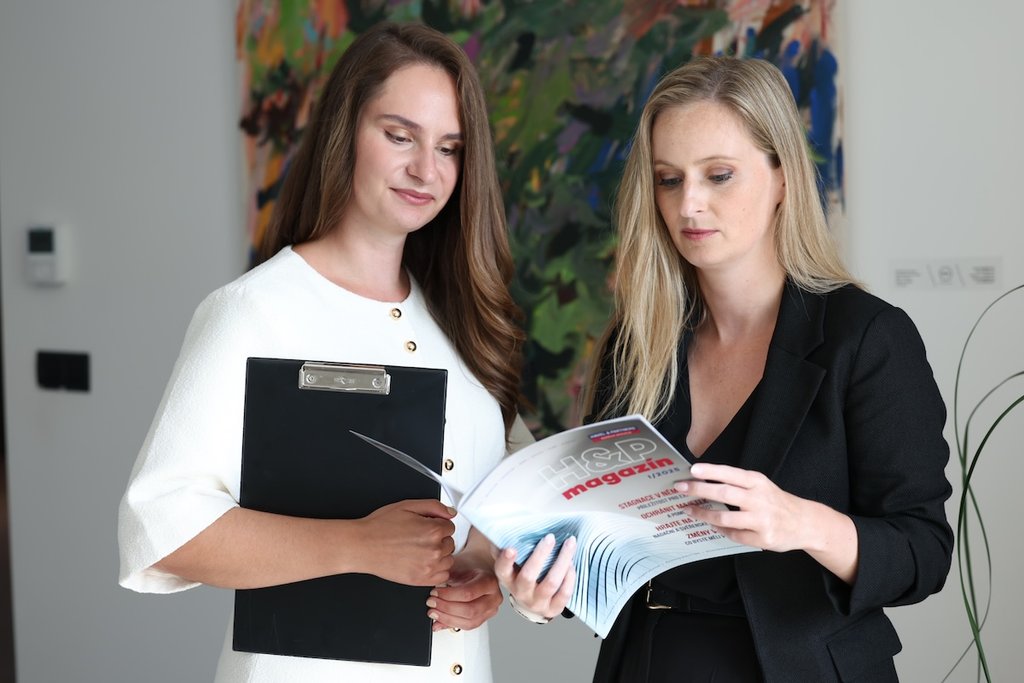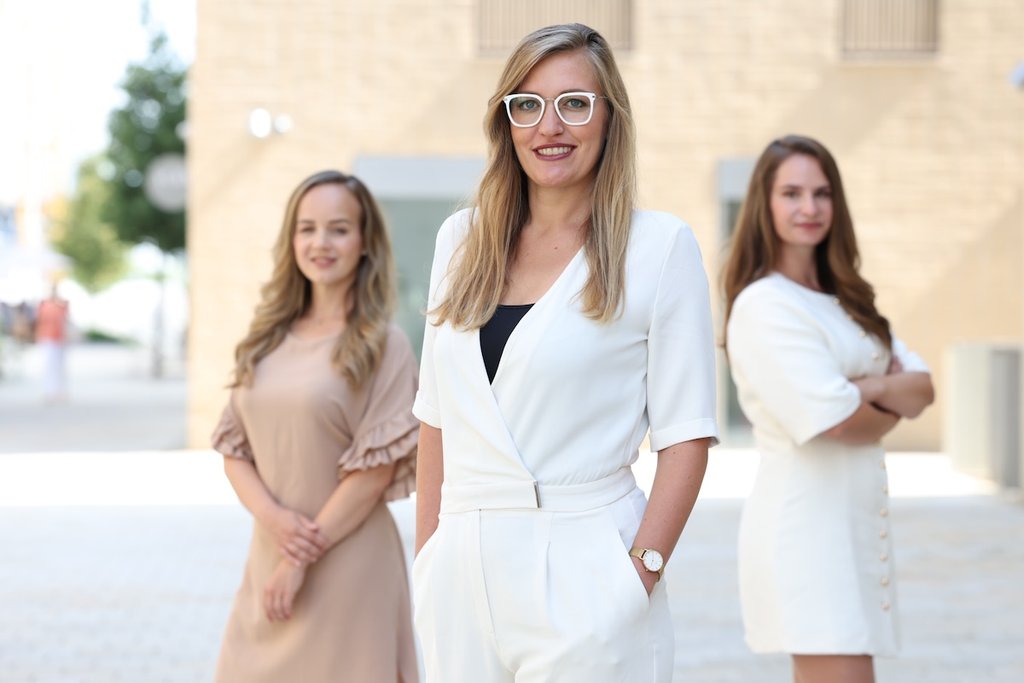
The global trend of wealth transfer to women can also be seen in Slovakia. Almost every two in five Slovak women (38%) manage their own property independently. In addition, more than one in three Slovak women (34%) invest to have enough money for their own goals and dreams. Compared to men, female investors are more likely to go for safe bets, but this changes with age and experience. These are the findings from a survey conducted as part of the NextŽeny (NextWomen) project by HAVEL & PARTNERS, a law firm, ONE FAMILY OFFICE, RSM, and VISA in cooperation with Ipsos, a market research firm.
Women control one third of the world’s wealth, increasing the value of their assets at a significantly faster rate in recent years than before. In Europe, according to McKinsey data, assets controlled by women grew from $4.6 trillion in 2018 to $6.6 trillion in 2023, expanding from 32 percent to 38 percent of total EU assets under management (AUM). McKinsey also predicts that in the EU, female-controlled assets will reach $11.4 trillion, 47% of all EU assets, by 2030.
Women are steadily strengthening their socio-economic position in society, primarily because they are becoming more emancipated and economically active. They are educating themselves, they are increasingly taking up senior positions, and the number of female entrepreneurs and investors is increasing. Furthermore, according to official figures, women live longer than men, and according to the 2023 Family Behaviour Report of the Statistical Office of the Slovak Republic, women marry men that are 3 to 5 years older in 41% of cases, and in 22% of cases even 6 or more years, which means that women more often inherit property from men.
“We believe that the transfer of wealth to women is part of property transfer from builders to managers, a broader and well-known phenomenon in the West. While entrepreneurs have built highly successful businesses and expanded their wealth enormously as their firms have grown, their successors, many of whom will be women, will seek to maintain and to successfully manage the wealth to ensure that its yields provide for their expanding families in the long term. Strategic, professionalised management of these assets will play a key role,” says Jaroslav Havel, Managing Partner of HAVEL & PARTNERS and ONE FAMILY OFFICE.
As a result of social, economic, demographic, and cultural factors, women are increasingly able to build up a large fortune on their own. The NextŽeny survey conducted in Slovakia has now shown that Slovak women are also emancipated when it comes to managing their own property. Almost every two in five (38%) Slovak women have reported that they handle their own assets and financial affairs. “The highest proportion of female investors who manage their own wealth is among women aged 18 to 34. Open to online investing, often single or at early stages of a relationship, they are used to handling their own finances while studying or shortly after. A strong digital skillset and a greater willingness to try riskier products are some of the reasons. This is great news for the future growth in the number of female investors,” says Jana Holíková, Director of Business Relations at ONE FAMILY OFFICE. Not only young but also single or divorced women manage their assets and finances independently. And even more than one in four (26%) married women manage their finances and property on their own.


Compared to Czech women, Slovak women are more independent when deciding about their assets. According to the NextŽeny survey from 2023, only 26% of women in Czechia managed their own property. Czech women, on the other hand, were most likely to decide on family property together with someone else (39%). In the current Slovak survey, about one in three Slovak women (32%) have reported to deal with finances and property together with someone else in their household. “While in Czechia, property management is more often a joint affair, Slovak women learn to work with their own portfolios at a younger age, even when they have a partner,” confirms Jana Holíková.
Slovak men in Slovakia most often take care of the financial and property-related affairs of the entire household on their own (34%), twice as often as women, as only 16% of women decide on the finances and property of the family alone. “For a long time, a strong group of older cohorts, the baby boomers and the next Gen X, lived in a traditional model with a conservative investment approach, with only the man (the founding father) having the final say and often being the only one who knew the family’s financial situation,” says Jana Holíková.
6 out of 10 men and 5 out of 10 women diversify their investment portfolio, making partly conservative investments with lower risk and yield, and partly riskier ones with higher yields. Slovak women are more likely than men (22% vs. 13%) to choose more conservative investments with a lower level of risk. Men, on the other hand, are more likely than women to go for bolder investments, seeking maximum returns even if the risk is higher (19% men vs. 9% women).
“In this respect, Slovak data correspond to figures from abroad, after all. A simple example is the possession of bitcoin, which comes out 6:4 in favour of men. Women, on the other hand, are more likely to be interested in slower-growing but lower-risk investments. When managing their own assets, they look to conservative funds. When managing a business, they are more likely to look around for investment in their industry and don’t feel like having to run elsewhere,” explains Monika Marečková, Managing Partner of RSM, a consultancy.
The risk appetite of women and men in Slovakia also changes with age. Aged between 34 and 44, women invest the most, preferring a combination of conservative and diversified products. Younger women up to the age of 34 are more conservative, taking significantly lower risk than men do. From the age of 44 onwards, women show an increasing willingness to take risks. Over 55, 14% of Slovak women have high-risk investments in their portfolio, which may be related to their longer investment experience.
“Surveys show that in Slovakia, there is a growing group of financially active women who have either established themselves as employees or businesswomen or are heiresses, wishing to make their own decisions, educate themselves and follow trends. This generation is also naturally more open to risk with the prospect of higher returns,” says Jana Holíková from ONE FAMILY OFFICE. On the other hand, as men grow older, their willingness to take risks decreases. At a younger age, one in three Slovak men have high-risk investments, but after they turn 55, their risky investments fall to as little as 3%.
According to the NextŽeny survey, people in Slovakia most often want to use investments to provide for their old age, protect their assets from depreciation, and to provide for their families. In this regard, the motivation of men and women does not differ much. However, significantly more Slovak women (34%) than Slovak men (20%) invest because they want to have enough money to pursue their goals and be independent in acquiring what they want. “Wealth management as such is not only about finances, but also about identity. Slovak women invest to become independent and gain the ability to shape their future. This also includes the need to indulge in things they desire without having to ask their spouse/partner/father for money,” says Jana Holíková. On the other hand, men are more likely to invest as a hobby and to do so for personal satisfaction.


In line with the fact that Slovaks want to secure their finances for their old age, the vast majority use retirement savings schemes (77%). Women prefer liquidity, with more than three in four leaving excess funds in a current account and 71% choosing a savings account. The majority of Slovak investors still base their asset portfolios on real estate. More than one in two women and two in three men save their money in this traditionally popular segment. Real estate is seen as a promising investment for the future by 73% of female and 68% of male investors.
Men most often get their investment information from investment and news websites (59%). Women, on the other hand, rely more on personal contact: over half of them (54%) regularly receive information from a banker or financial adviser.
The younger generation aged below 34 use podcasts and videos as the main source of content (54%). More affluent investors with capital exceeding EUR 830,000 prefer more traditional, structured content: reputable financial portals and print publications. In a nutshell, the broader the portfolio and experience, the greater the willingness to read long analyses; the lower the age, the more “streamed” know‑how.
However, digital tools play a key role both in gathering information and in managing the finances. “Digital banking has become a common part of the financial life of most Slovaks – up to 66% of them use it on a regular basis. Interestingly, around one in five male and female investors (22%) actively manage their investments through digital banking. These results clearly indicate that confidence in digital finance solutions is growing,” said Ľubica Gubová, Visa Country Manager for Slovakia.
Death and inheritance are major life milestones, marking a one-off transfer of a significant amount of wealth. Businesses are increasingly taken over by women as the new-generation successors. This was also confirmed in Slovakia by the NextŽeny survey in 2022. An analysis of a sample of the 10 largest Slovak family-owned businesses conducted in 2022 showed that 90% of the owners were men. 80% of the business owners were already over 60 years old, and even a fifth of the total number of owners were octogenarians. This means that for most of these entrepreneurs in Slovakia, succession is a very important topic. In addition, analysing property and family relationships, the study found that if these family-owned firms were to be passed by inheritance under the Slovak laws, the majority of the assets, namely 65%, would pass into the hands of women. Only 20% of assets would remain male-controlled.
Therefore, sudden events and death fundamentally affect the distribution of family assets. That is why the current NextŽeny survey in Slovakia has looked at how prepared people are for these situations.
In the case of such an unexpected event, everyone in two people have a clear or at least a partial plan for their or the family’s assets. Slovak men and women have quite a similar approach. One in four have written down and keep the rules in one place, while 28% have some rules, but do not keep them neatly in one place. 9% of men and 4% of women have planned for these events as part of the family office.
At times of crisis, Slovaks rely mainly on their family: 68% believe that in an unexpected event, a loved one would be able to manage the family assets. Around six in ten people have clarified with their family what is going to happen with their finances or business (61%) and a similar proportion know how their children and partner will be provided for (61%); the older they are (45+), the more certain their plans are for such events. Only about a third of people would entrust asset management to professionals.
On the other hand, the survey has also showed that everyone in two people have no plans for the future of their property in the case of a sudden event. What is more, half of these people don’t even know whether they will prepare any rules, or they don’t want to devise them at all. Women (57%) were more likely than men (36%) to give a negative answer.
“Half of people have not thought at all about the future of their assets in the case of a sudden event, and women are even more likely to postpone the issue; yet these situations pose one of the greatest risks to the stability of family wealth. In the absence of a last will or clear rules, assets are divided according to statutory law, which often leads to fragmentation and disputes. Trusts and endowment funds are therefore gaining in importance because they can protect assets and ensure that they are managed according to the true will of the owner,” says Štěpán Štarha, Partner at HAVEL & PARTNERS.
The survey involved 295 respondents among Slovakia’s active investors, of which 51% were women and 49% were men of all age groups. The survey was conducted, the data collected and evaluated by Ipsos, a market research firm. The data was collected between 26 June and 26 July 2025 using the CAWI method. Clients and business partners of HAVEL & PARTNERS and RSM SK responded using the Populacia.sk online panel. For each completed questionnaire, HAVEL & PARTNERS and RSM SK is going to contribute EUR 3 to Foundation for Children of Slovakia, a non-profit organisation.